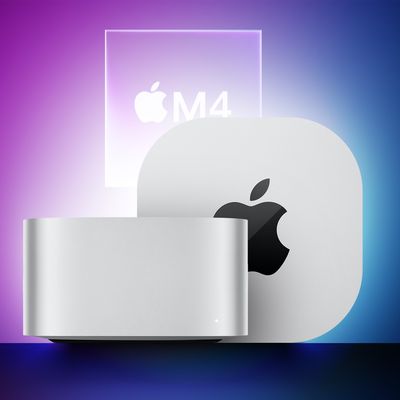Google Adds AI-Powered Google Lens and Tab Compare to Chrome for Desktop
Google today announced three new AI features that are coming to its Chrome browser, with Google taking advantage of the latest Google AI and Gemini models.

Google Lens is now available for the Chrome desktop browser, allowing users to search for what they see on the browser screen with a quick drag and search gesture. Google says that Chrome users can select anything on the page to search for visual matches, including text and images.
Searches can be refined by color, brand, and other details, and follow up questions are available for a deeper dive into a topic.
Tab compare is a new feature that is designed to let users see an AI-generated overview of products from across multiple tabs in one spot. Google says that this is useful for comparing reviews, prices, and other elements of multiple products when deciding what to purchase.
Google is also introducing a natural language search option for Chrome browsing history, allowing Chrome users to quickly find a site that they visited in the past with a phrase like "What was that ice cream shop I looked at last week?" Conversational search is optional, and can be turned on or off in the Chrome settings. It will not include data from incognito mode.
The AI-powered Google Lens feature will be available with the latest Chrome update that's rolling out over the next few days, while the other two features will be available in the next few weeks. Tab compare and the browser search option will both be rolled out in the U.S. to begin with.
Popular Stories
Leaker Sonny Dickson is back today with a new dummy unit image showing all four iPhone 16 Pro color variants, including the rose gold or "bronze" unit that replaces Blue Titanium in the existing iPhone 15 Pro models. The iPhone 16 Pro models are expected to come in black, white or silver, gray or "Natural Titanium," and a rose or rose gold color replacing Blue Titanium, according to Apple...
Multiple rumors have suggested that the iPhone 16 models are going to have an all-new button that's designed to make it easier to capture photos when the devices are held in landscape mode. Apple calls the button the Capture Button internally, and it is going to be one of the most advanced buttons that's been introduced to date with support for multiple gestures and the ability to respond to ...
Apple typically releases its new iPhone series in the fall, and a possible September 10 announcement date has been floated this year, which means we are just one month away from the launch of the iPhone 16. Like the iPhone 15 series, this year's lineup is expected to stick with four models – iPhone 16, iPhone 16 Plus, iPhone 16 Pro, and iPhone 16 Pro Max – although there are plenty of design...
Apple's iPhone 16 series is expected to debut in September 2024. This release follows Apple's trend of introducing new iPhone models annually in the fall. While the exact date has yet to be officially confirmed, the day of Tuesday, September 10 has been rumored as a possible announcement date, and September has traditionally been the month when Apple unveils its latest smartphone innovations. ...
Apple is moving forward with its project to develop a tabletop robotic device, according to Bloomberg's Mark Gurman. Subscribe to the MacRumors YouTube channel for more videos. The device would feature a large iPad-like display mounted on a "thin robotic arm" that would allow the display to tilt and up and down and rotate a full 360º, and it would serve as a "smart home command center," a...
It's almost September, but Apple still has multiple new product launches planned for 2024. New iPhone 16 models and Apple Watches are coming in September, and we're also going to get at least three Mac updates with M4 chips this year, according to rumors. Here's what's on the horizon. MacBook Pro Apple plans to refresh both the 14-inch and 16-inch MacBook Pro models, adding M4 chips. The ...
T-Mobile was fined $60 million by the Committee on Foreign Investment in the US (CFIUS) for negligence surrounding data breaches, reports Reuters. CFIUS penalized T-Mobile for failing to prevent or disclose unauthorized access to sensitive customer data. When T-Mobile merged with Sprint, it signed a national security agreement with CFIUS, which is what led to the fine earlier this year....





















